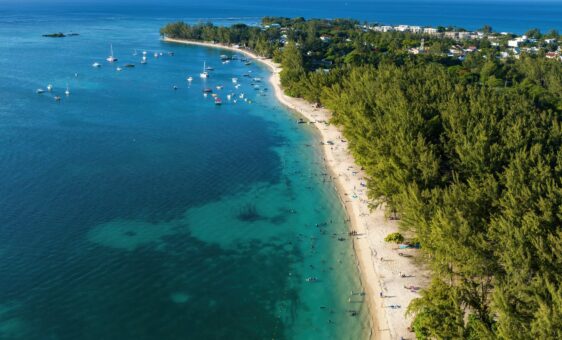Part of the Economic Development Board Act was proclaimed on 5 August 2017 to allow for the establishment of the EDB and appointment of the Chairperson and other members of the Board. The remaining sections of the EDB were proclaimed on 30 December 2017, effectively providing for the commencement of the EDB on 15 January 2018. Accordingly, the EBD has commenced as a statutory body as from 15 January 2018 and operates under the aegis of the Prime Minister’s Office.
1. What is the objective behind the creation of the EDB?
The objective behind the creation of the EBD is to ensure greater coherence and effectiveness in implementing policies and actions, especially for trade and investment promotion, and to draw the vision for the economic development path to be adopted for the future.
The EBD is mandated to ensure nation-wide short, medium and long term economic planning to better and more efficiently catalyse development and face such challenges like Brexit, ageing population, education mismatch among others.
The EBD aims to:
provide strong institutional support for strategic economic planning and ensuring greater coherence and effectiveness in economic policy formulation;
promote Mauritius as an attractive investment and business centre, a competitive export platform as well as an international financial centre;
act as the main institution responsible for country branding for investment promotion; and
facilitate both inward and outward investment and ensure a conducive business environment.
2. How did the EDB emerge?
The merger of the Board of Investment (BOI), the Financial Services Promotion Agency (FSPA) and Enterprise Mauritius (EM) resulted in the set up of the EDB as a transitional structure. It debuts a new chapter in economic planning, investment and trade promotion and facilitation. Following a press communiqué of the EBD dated 15 January 2018, the staff, assets and liabilities of the above defunct institutions have been transferred to the EBD with immediate effect. The Investment Office has replaced the BOI, the Trade and Export Office has replaced Enterprise Mauritius and the Financial Services Promotion Office has replaced the FSPA.
The FSPA is operating as an office under the EDB with the following functions:
Promote and position Mauritius as an International Financial Centre of repute and substance;
Enhance the image of Mauritius as a clean and reputable financial centre;
Act as a think tank for matters relating to the promotion and development of the Mauritius International Financial Centre (IFC);
Develop and enhance the product offerings of the Mauritius IFC; and
Spearhead the Financial Services Institute (FSI), to provide specialized training and courses dedicated to the financial services industry.
The Trade & Export Office of the Economic Development Board is the National Export Promotion Agency responsible for export promotion and export development. It is a collaborative partnership between industry and Government to help, within an integrated framework, businesses in Mauritius expand into regional and international markets and at the same time develop their internal capability to meet the challenges of international competition.
However, far from being simply a merger of those existing institutions, it is:
A rebranding exercise: the EDB is supposed to better help “country branding”. Similar to the way Japan is known for technology, the automobile industry, robotics and electronics or Switzerland for it’s the financial services or its famous and watch brands. In Mauritius the EBD will have the task to conduct an analysis of our image and propose solutions for our ‘country branding’.
A relocation of marketing and promotion institutions under one roof: the EDB represents the central institution that develops into a national organization geared towards economic development.
3. What are the functions of the EDB?
The Economic Development Board has the following functions:
provide high-level strategic and policy advice to Government on economic policy formulation;
initiate and undertake necessary economic research at the macro-economic level, engage with stakeholders on economic matters and formulate investment and trade promotion policies, plans and strategies;
coordinate efforts across different institutions and public sector agencies for economic diversification, upgrading of existing economic sectors and promoting efficiency in export promotion;
advise Government on appropriate policies and strategies for socio-economic development, trade development, export and investment promotion, infrastructure development, labour market improvement and business facilitation;
advise on, and facilitate, the development of major projects which are of significance or strategic importance to the economy;
monitor and evaluate the outcomes of policies and projects;
improve business environment and undertake such other activities as may be necessary to promote Mauritius as an attractive base for investment and as an international financial centre;
identify opportunities in new economic sectors and engage with international partners to develop strategic alliances to create the appropriate ecosystem for these sectors;
spearhead outward investment and assist in developing joint ventures and partnership agreements;
act as the single interface with all investors and liaise with relevant authorities –
for the registration of investors;
to facilitate the issue of licences or permits, or the granting of authorisations or clearances;
manage the Film Rebate Scheme, the Integrated Resort Scheme, the Invest Hotel Scheme, the Mauritian Diaspora Scheme, the Property Development Scheme, the Real Estate Development Scheme or such other Scheme as the Minister may approve;
issue such directions to relevant agencies and authorities as may be necessary for the timely issue of licences and permits and the granting of authorisations and clearances;
request from relevant authorities the grounds for refusal of any licence, permit, authorisation or clearance; and
issue such directions to public sector agencies and other relevant authorities as may be necessary for the review and re-engineering of the procedures relating to licences, permits, authorisations and clearances and for the publication of appropriate guidelines.
EDB has three main and specific functions:
the promotion of investment and the exportations of goods and services;
strategic thinking on economic development and registration; and
the regulation and supervision of companies.
The first function consists of:
positioning Mauritius in such a way that it acts as a bridge between Asia and Africa;
favouring the country in becoming a hub of trade, of logistics and a financial hub;
identifying new strategies for global businesses;
diversifying the investments and exports of Mauritius;
acting as a real one-stop shop for any investor;
preparing the economy to open up more to the rest of the world;
improving the ease of doing business;
identifying emerging sectors like blockchain and Fintech; and
developing a brand for Mauritius.
Strategic thinking on economic development and registration will require that Mauritius works on innovative, scientific and technological front while continuing to work for structural transformation and diversification of the economy.
The regulation and supervision of companies shall contribute to make Mauritius gradually transform itself into a hub and an international jurisdiction for investors in search of security, transparent regulation and high value-addition. The EBD shall act as the single interface with all investors and liaise with relevant authorities for the registration of investors and to facilitate the issue of licences or permits, or the granting of authorisations or clearances.
The Economic Development Board has been acclaimed for its outstanding performance and honored with the second prize for Best Investment Project in the Southern African Region at the Annual Investment Meeting 2018 held in Dubai on 9th April 2018.
The Economic Development Board now seeks to consolidate regional markets, more specifically the islands that are members of the Indian Ocean Commission. As part of its strategy for the diversification of its exports markets and the consolidation of the exportations of Mauritian products, the EDB has programmed several promotional actions that shall be carried out in the coming months through its Trade and Export office in Moroni, Comoros Island, Reunion Island, the Seychelles and Madagascar.
The strategy behind these promotional campaigns is to establish visibility and faith among the consumers themselves. It is tailored to boost the visibility and position of Mauritius as the preferred sourcing destination for Comorians, for the Reunion and Seychelles business communities and to further increase exports towards those countries.


















